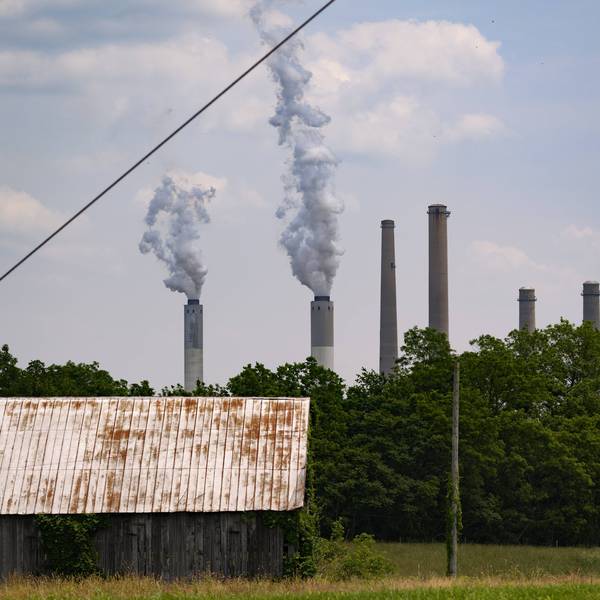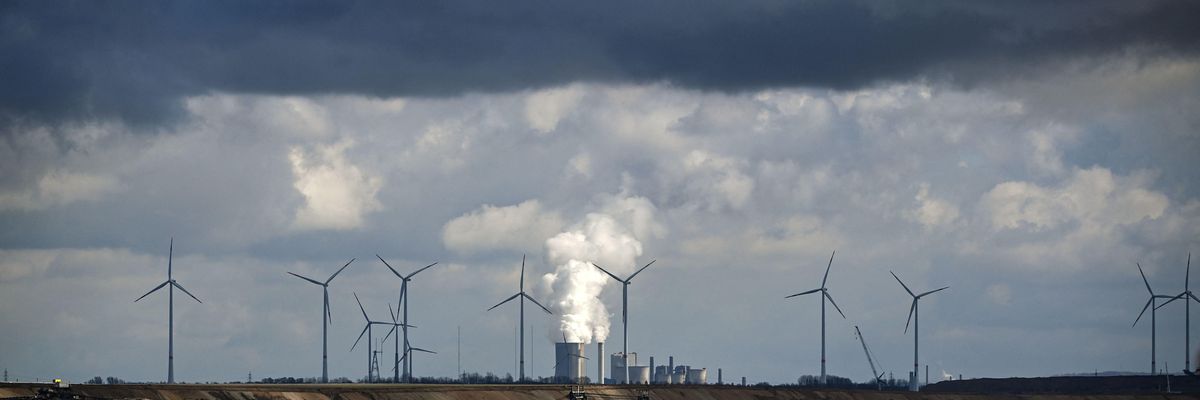A new online tool launched Wednesday by a U.S.-based advocacy group details how international public finance is continuing to fuel the climate emergency rather than sufficiently funding a just transition to clean energy.
"Between 2018 and 2020, G20 international public finance institutions provided at least $63 billion per year ($188 billion in total) for oil, gas, and coal projects."
Oil Change International (OCI) unveiled its Public Finance for Energy Database--accessible at energyfinance.org--along with a briefing that lays out key findings, why the group is monitoring public finance for energy, and how these institutions "are uniquely positioned to catalyze a just, transformative, and rapid transition."
The open-access tool targets development finance institutions (DFIs), export finance agencies (ECAs), and multilateral development banks (MDBs), focusing on Group of 20 (G20) countries, the world's biggest economies. The website features a data dashboard as well as a policy tracker.
"Public finance shapes our future energy systems," the briefing states, explaining that these "institutions' investments total $2.2 trillion a year: an estimated 10% of global financial flows. Worldwide, 693 government-owned or operated banks own assets worth about $38 trillion and if central banks, sovereign wealth funds, pensions, and multilateral banks are also included, this doubles to $73 trillion."
"The impact of this finance reaches beyond its own scale because public finance has an outsized influence on the decisions private financiers make," the document adds. "This is because public finance has government-backed credit ratings, is often provided at below-market rates, often has larger research and technical capacity, and signals broader government priorities. All of this helps make a project a less risky and more attractive investment."
The briefing points out that "G20 international public finance is currently blocking a just energy transition, bankrolling 2.5 times more fossil fuels than clean energy."
OCI communications campaigner Nicole Rodel highlighted that and other takeaways, along with the Intergovernmental Panel on Climate Change (IPCC) report released earlier this month, in a statement about the new resources.
"This month's IPCC Working Group III report was clear that continued fossil fuel finance of any kind is misaligned with the Paris climate goals, and that public finance in particular plays a key role in determining our global future energy system," Rodel noted.
"Yet, our new Public Finance for Energy Database shows that public finance remains skewed to fossil fuels," she said. "Between 2018 and 2020, G20 international public finance institutions provided at least $63 billion per year ($188 billion in total) for oil, gas, and coal projects."
Rodel added that "this preferential, government-backed fossil fuel financing was 2.5 times more than their support for clean energy, which averaged $26 billion per year over the same period."
OCI communications director Matt Maiorana recalled pledges made in Scotland last year at the COP26 summit for parties to the Paris agreement--which calls for keeping global temperature rise this century below 2degC, and ideally limiting it to 1.5degC, above preindustrial levels.
"This year the balance can tip in favor of a just energy transition if countries follow through on their commitments," he said. "At the global climate conference in Glasgow last November, 39 countries and institutions committed to end international public finance for fossil fuels by the end of 2022 and instead prioritize public finance for clean energy. They now have a few months left to turn their commitments into strong policy."
"There is an important opportunity for these signatories to encourage other countries and the MDBs to follow suit and to use opportunities to cement their commitments in existing policy processes at the international level," he added, specifically pointing to the G20, the Group of Seven (G7), and Organization for Economic Cooperation and Development (OECD).
While echoing that call for swiftly shifting public finance from fossil fuels to clean energy, the briefing recognizes that this "will not be enough" and "beyond this, wealthy G20 governments must also provide their fair share of debt cancellation, climate finance, and reparations for loss and damage."'
Noting demands for rich countries to put up to trillions of dollars toward mitigation, adaptation, and loss and damage as well as to support a debt jubilee for the Global South of $100 billion annually over the next decade, the briefing concludes that "wealthy governments have the tools needed to fund a globally just energy transition at this scale, including using publicly popular measures like raising wealth and corporate taxes, making polluters pay for their environmental damages, and cracking down on tax havens."




